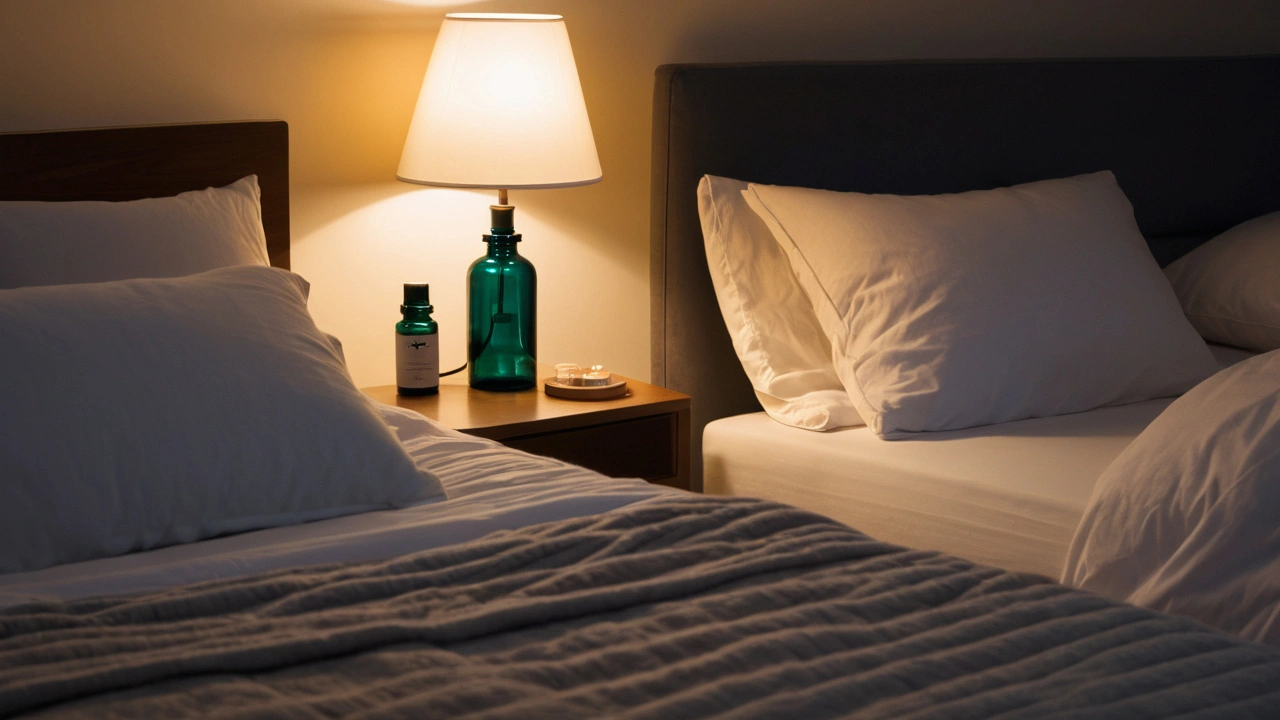Sleep Aid: Practical tips, supplements and what to watch for
Can one pill or a simple supplement really fix your sleep? Sometimes yes, sometimes no. This tag page collects clear, practical pieces about things that help sleep (like glycine), things that can harm it (certain meds), and straightforward steps you can try tonight to sleep better.
Quick tips to try tonight
Start with basics: keep your bedroom cool, dark and quiet. Go to bed and get up at the same time every day, even on weekends. Cut caffeine after midday and limit heavy meals close to bedtime. Move screens away at least 30–60 minutes before bed — the blue light tricks your brain into staying awake. If you want a short supplement option, many people report benefit from about 3 grams of glycine taken before bed; it can calm body temperature and help you fall asleep faster. Still, check interactions with other medicines first.
Use behavioral fixes before medications. Cognitive Behavioral Therapy for Insomnia (CBT‑I) is a proven non-drug approach that fixes sleep habits and patterns. If you tried good sleep habits for a few weeks without improvement, talk to your clinician about CBT‑I or a short-term medication plan. Drugs can help, but they often work best when combined with better sleep routines.
When meds or conditions affect sleep
Some medications make sleep worse. For example, certain antiviral drugs or stimulants can cause insomnia. Statins have been reported by some people to change sleep quality or cause vivid dreams; if you notice new sleep problems after starting a drug, bring it up with your doctor. Ribavirin and a few other treatments can also disrupt sleep for some patients. Don’t stop medication on your own — ask your prescriber about timing changes, switching drugs, or dosage adjustments.
If you take multiple medicines, make a short checklist: which drugs you take, when you take them, and any sleep changes since starting each one. That checklist makes conversations with your clinician faster and clearer. For over-the-counter options, be careful: antihistamine sedatives can leave you groggy the next day and aren’t recommended for long-term use.
Explore the articles in this tag for deeper reads: glycine benefits, how statins can affect sleep, and real-life tips for dealing with drug-related insomnia. Each post focuses on practical steps and what to ask your provider. If sleep problems last more than a few weeks or cause daytime trouble — falling asleep at work, mood changes, or accidents — see a doctor or a sleep specialist. Better sleep is realistic, and small, specific changes often make the biggest difference.

Amitriptyline for Insomnia: Does It Really Help You Sleep?
Amitriptyline is commonly prescribed as an off-label treatment for insomnia. This article explores its effectiveness in helping people sleep better, examines its potential side effects, and provides tips on how to use it safely.
